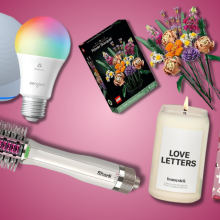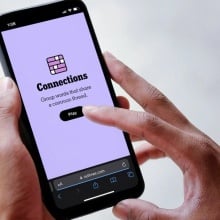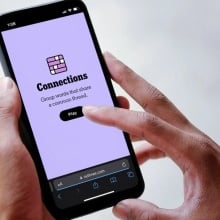In our search for calm and stability during a hellish time, perhaps no mantra stands out as more comforting than "give yourself grace."
It's the refrain you might turn to when coping with daily frustrations like arguing with your children, driving aggressively after being cutoff, or feeling overwhelmed by the stress of global events such as the coronavirus pandemic. It offers relief in the midst of serious transgressions, like failing to show up for an important moment or betraying a promise. Give yourself grace is permission to forgive your mistakes, lapses in judgment, and hurtful behavior, because no one is perfect.
The saying has deep roots in yoga and faith communities, and it frequently shows up online as a hashtag or inspirational quote. On Instagram, the combination of #grace and #giveyourselfgrace had more than 400,000 uses over just a few months during the height of the COVID-19 pandemic in late 2020. While the give yourself grace hashtag on the platform didn't grow significantly during that time, it's waiting there (and on other social media sites) as a gentle reminder to let go of self-criticism, pity, and shame.
Yet grace giving should involve more than putting yourself at ease. It should also prompt some form of action, whether that's self-care, repairing a damaged relationship, or taking responsibility for your choices. First you need to learn how to use it as more than a hashtag or cliché.
Dianne Bondy, a yoga teacher and author of Yoga For Everyone, knows the saying well and is a "big believer" in its potential.
"Grace happens to give us some space, acceptance, and room to take a hard swallow or step back."
"Grace happens to give us some space, acceptance, and room to take a hard swallow or step back...and practice self-compassion," she says.
Like any other well-worn saying, Bondy says it can also become "empty" or "plastic" if used in the wrong context. That could be invoking it to exit an uncomfortable situation or avoiding making an apology when you've hurt someone else. Grace isn't an excuse for feeling less inner or interpersonal conflict but an opportunity to be kind to yourself.
Bondy says that when expressions of grace online are performative, they ultimately become a trendy, meaningless sentiment. If someone you follow online talks about giving grace, that should arise in an appropriate context and be tied to an action, like solving problems, seeking forgiveness, or practicing acceptance of difficult circumstances and emotions.
"Don't just say the word and not do anything to deal with [a problem], or say the word and center yourself," she says.
Toby Sola, head teacher of the meditation app Brightmind, thinks of grace giving as a form of equanimity. That concept is defined by an openness, softness, and love, qualities that allow emotions to come and go, "without push or pull," says Sola. People often want to hold positive emotions close and resist negative feelings, but equanimity can help them instead greet every experience with warmth and acceptance. Sola says this actually increases the fulfillment derived from pleasurable experiences while decreasing the distress that comes from uncomfortable feelings.
When regret and shame, for example, are met with acceptance, Sola says they're not just a source of distress but serve an important purpose by signaling to the mind and body that it's possible to act differently in the future. In that sense, consider giving yourself grace a step toward making different choices.
Discovering a grace-related social media post that offers an opportunity to be kind to yourself may help your body relax. The exhausted mom who sees a post about giving yourself grace when balancing remote school and work might feel her harsh self-judgment fall away, along with the sudden release of tight jaw or tensed muscles.
To reproduce this sensation offline, Sola recommends relaxing the body and taking a few deep breaths. While that's not equanimity in practice, it is a step in the right direction. For a more authentic experience of equanimity, try a guided meditation while keeping the body loose and putting a slight smile on your face. The meditation could include a mantra like "I give myself grace," which should be recited in a calm, matter-of-fact tone.
If it feels forced at first, rest assured that a mantra "can seep into the rest of your being" over time, says Sola.
The pitfall in this practice, however, is mistaking equanimity for apathy about your behavior because everything can be met with nonjudgmental openness.
"You should strive to improve the world and your relationships and how you act," says Sola.
Equanimity used appropriately can help you do that by reducing the stress and anxiety that come with challenging emotions and experiences, thereby freeing up energy to responsibly handle strain, mistakes, and conflicts.
Sola understands why the idea of giving yourself grace has been helpful for people during a time filled with suffering.
"When you're objectively overwhelmed, and sometimes you don't even know what to do to make your situation better, which is the case for a lot of people, you only have one option," he says. "Greet it with grace."
UPDATE: Nov. 20, 2023, 2:04 p.m. AEDT This article was originally published in Nov. 2020, and has since been updated in Nov. 2023.
Topics Health Mental Health Social Good Self-Care





























